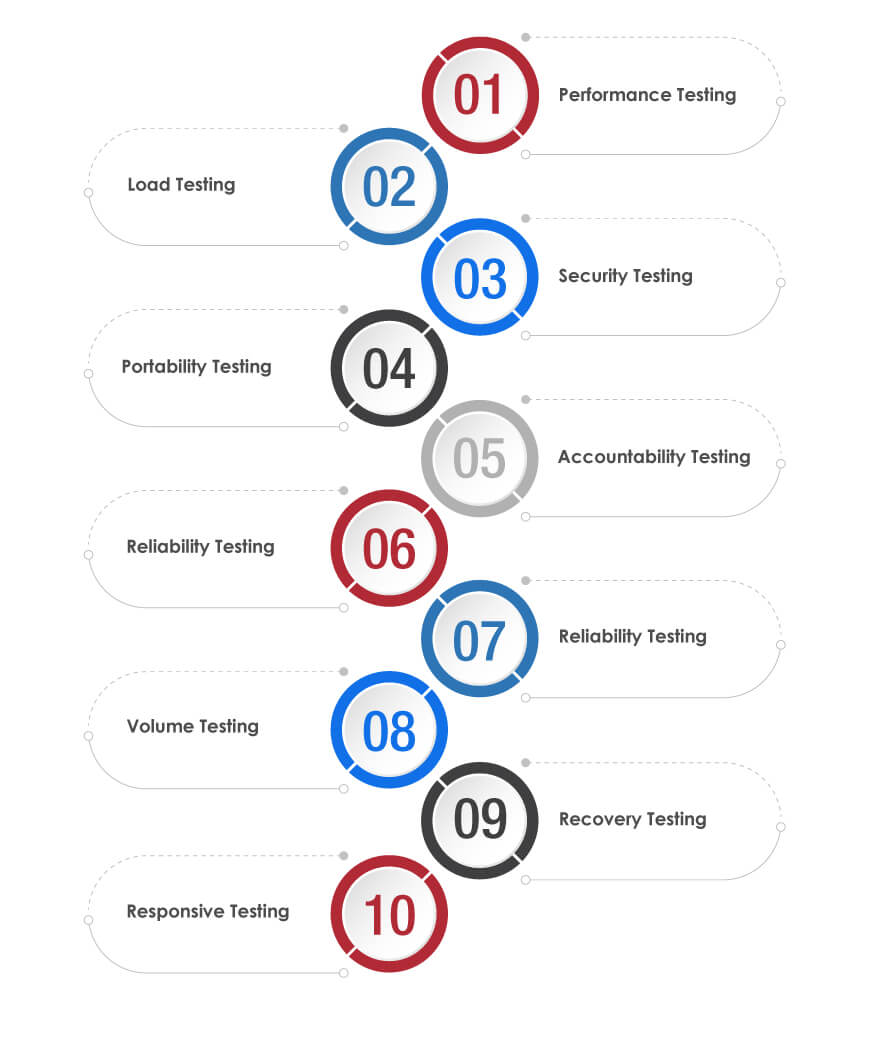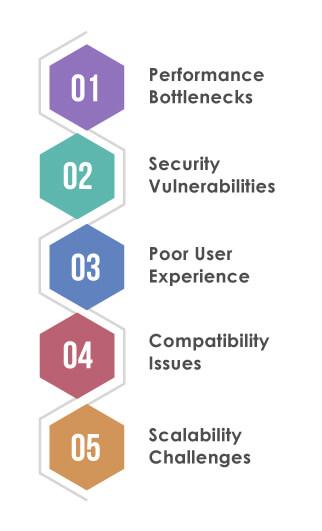The Role of Non-Functional Testing in Reliable Software Delivery

Non-functional testing is a crucial aspect of software development that often goes overlooked. While functional testing ensures that software performs its intended tasks, non-functional testing focuses on aspects such as performance, security, usability, and scalability. Ignoring non-functional testing can pose significant risks, including compromised system performance, security vulnerabilities, poor user experience, and limited scalability. In this blog, we will explore the hidden risks of neglecting non-functional testing and why it should be an integral part of the software development process.
What is Non-Functional Testing and its types?
Before we begin, let’s quickly define non-functional testing. While functional testing focuses on what the software does, non-functional testing assesses how well it performs. It delves into aspects such as scalability, reliability, security, performance, and user experience. Neglecting these critical areas can have far-reaching implications.

Performance Testing
Performance testing helps identify and fix issues that make the software slow or unable to handle the workload. Performance tests are executed to examine application speed, reliability, robustness, and size.
Load Testing
The system’s loading capability is tested during load testing. The system can handle sudden increase users’ volume because of its loading capacity.
Security Testing
Security testing is used to find the issues in software applications and ensure that sensitive data is protected from breaches.
Portability Testing
Portability testing evaluates how to run multiple operating systems without any bugs in the software and checks its ability.
Accountability Testing
Accountability testing helps identify if the system is functioning correctly or not.
Reliability Testing
Reliability testing verifies that the software system operates consistently without any failure.
Efficiency Testing
This testing looks at how many resources were used and how many were required to construct a software system.
Volume Testing
Volume testing assesses the ability of a system to handle a large amount of data, ensuring performance and functionality under heavy loads.
Recovery Testing
Recovery testing evaluates a system’s ability to recover from failures or disruptions, verifying that it can restore functionality and data integrity effectively.
Responsive Testing
Responsive testing evaluates how a system adapts and performs across different devices and screen sizes, ensuring consistent and user-friendly experiences across various platforms.
Here are a few risks associated with the Non-Functional Testing:

Risk #1: Performance Bottlenecks
Imagine a popular e-commerce website that failed to perform non-functional testing. As a result, during a flash sale, the website crashes due to a sudden influx of users, leaving disappointed customers unable to make purchases.
This not only tarnishes the company’s reputation but also results in revenue loss. Non-functional testing helps identify performance bottlenecks, ensuring that systems can handle peak loads without buckling under pressure.
Risk #2: Security Vulnerabilities
In today’s digital landscape, security breaches are a constant threat. Neglecting non-functional testing opens the door to vulnerabilities that hackers can exploit. Take, for instance, a banking application that fails to conduct security testing.
Without proper encryption or authentication measures, sensitive customer data becomes an easy target for cybercriminals. Non-functional testing helps detect security loopholes, protecting both user information and the company’s integrity.
Risk #3: Poor User Experience
User experience (UX) plays a crucial role in the success of any software application. Neglecting non-functional testing in this area can lead to frustrated users and high bounce rates. Imagine a mobile app that takes ages to load or a website with a cluttered and confusing layout.
Users will quickly abandon such applications, seeking alternatives that offer a smoother, more intuitive experience. Non-functional testing ensures that UX parameters like responsiveness, accessibility, and usability are thoroughly evaluated.
Risk #4: Compatibility Issues
In today’s multi-platform world, software must be compatible with various operating systems, browsers, and devices. Neglecting non-functional testing in this aspect can lead to compatibility issues. For example, a video streaming app that only works on specific devices or a web application that breaks on certain browsers. Non-functional testing helps identify and rectify compatibility issues, ensuring a seamless experience across different platforms.
Risk #5: Scalability Challenges
As a business grows, so does its user base. Neglecting non-functional testing for scalability can result in a nightmare scenario. Consider a cloud-based software service that experiences rapid expansion without adequate scalability testing.
Suddenly, the system becomes overwhelmed, leading to frequent crashes and downtime. Non-functional testing helps assess the application’s ability to handle increasing demands, allowing businesses to scale smoothly without disruptions.
Failure Instances due to Non-Functional Testing Failures
Amazon Prime Day Glitches:
Amazon’s annual Prime Day, an online shopping event, encountered technical issues in both 2018 and 2019. Customers experienced website slowdowns, broken links, and difficulties in completing purchases. These incidents demonstrated the criticality of non-functional testing, including performance testing and capacity planning, to handle the surge in traffic and ensure a seamless shopping experience during high-demand events.
Facebook’s Cambridge Analytica Scandal:
In 2018, Facebook faced a major controversy when it was revealed that the personal data of millions of users had been harvested without consent by Cambridge Analytica, a political consulting firm. This incident shed light on the significance of non-functional testing related to data privacy and security. The failure to adequately test and protect user data exposed a serious breach, leading to a loss of trust and a subsequent overhaul of Facebook’s privacy policies.
Realizing the Benefits: Success Stories
Netflix:
Netflix is renowned for its robust streaming platform that delivers high-quality video content to millions of users worldwide. The company heavily invests in non-functional testing to ensure a seamless streaming experience. By conducting performance testing, scalability testing, and load testing, Netflix can handle massive user traffic and deliver content without interruptions. This commitment to non-functional testing has contributed to their success as a leading streaming service.
Google:
As a tech giant, Google understands the importance of non-functional testing in providing a reliable and efficient user experience. Their search engine and various applications undergo rigorous testing to ensure optimal performance, security, and compatibility. By focusing on non-functional testing aspects such as response time, data integrity, and cross-platform compatibility, Google has established itself as a trusted provider of online services.
Airbnb:
Airbnb, a popular online marketplace for accommodations, understands the importance of non-functional testing to deliver a positive user experience. They conduct extensive testing to ensure the compatibility of their platform across various devices, browsers, and operating systems. By investing in non-functional testing, Airbnb can provide a seamless booking process, reliable payment systems, and a user-friendly interface, resulting in satisfied customers and repeat bookings.
These examples demonstrate how organizations that prioritize non-functional testing reap the benefits of enhanced performance, improved user experience, increased customer trust, and a competitive edge in the market. By investing in comprehensive testing strategies, these companies deliver high-quality software solutions that meet user expectations and drive business success.
Conclusion
Non-functional testing is not to be overlooked in the pursuit of functional perfection. The risks of neglecting non-functional aspects are real and can impact performance, security, user experience, compatibility, and scalability. By investing time and resources into non-functional testing, companies can uncover hidden risks, mitigate potential issues, and deliver robust, reliable software that meets user expectations. So, let’s embrace non-functional testing and build a solid foundation for success in the ever-evolving world of technology.
How Tx can help you with Non-Functional Testing?
Tx is a leading software testing company that offers comprehensive Non-Functional Testing as a Service (NFaaS). With their expertise and specialized approach, Tx can provide valuable assistance in all aspects of non-functional testing. Our team of skilled software testing professionals can conduct performance testing, security testing, usability testing, compatibility testing, and more. By leveraging industry-leading tools and methodologies, Tx ensures that software applications meet the highest standards of quality, performance, and user experience.
Whether it’s identifying performance bottlenecks, uncovering security vulnerabilities, or optimizing scalability, Tx’ offers tailored solutions to meet the unique needs of businesses. By engaging Tx for functional testing, organizations can benefit from their deep domain knowledge, extensive testing capabilities, and a proven track record of delivering successful testing engagements.
Discover more
